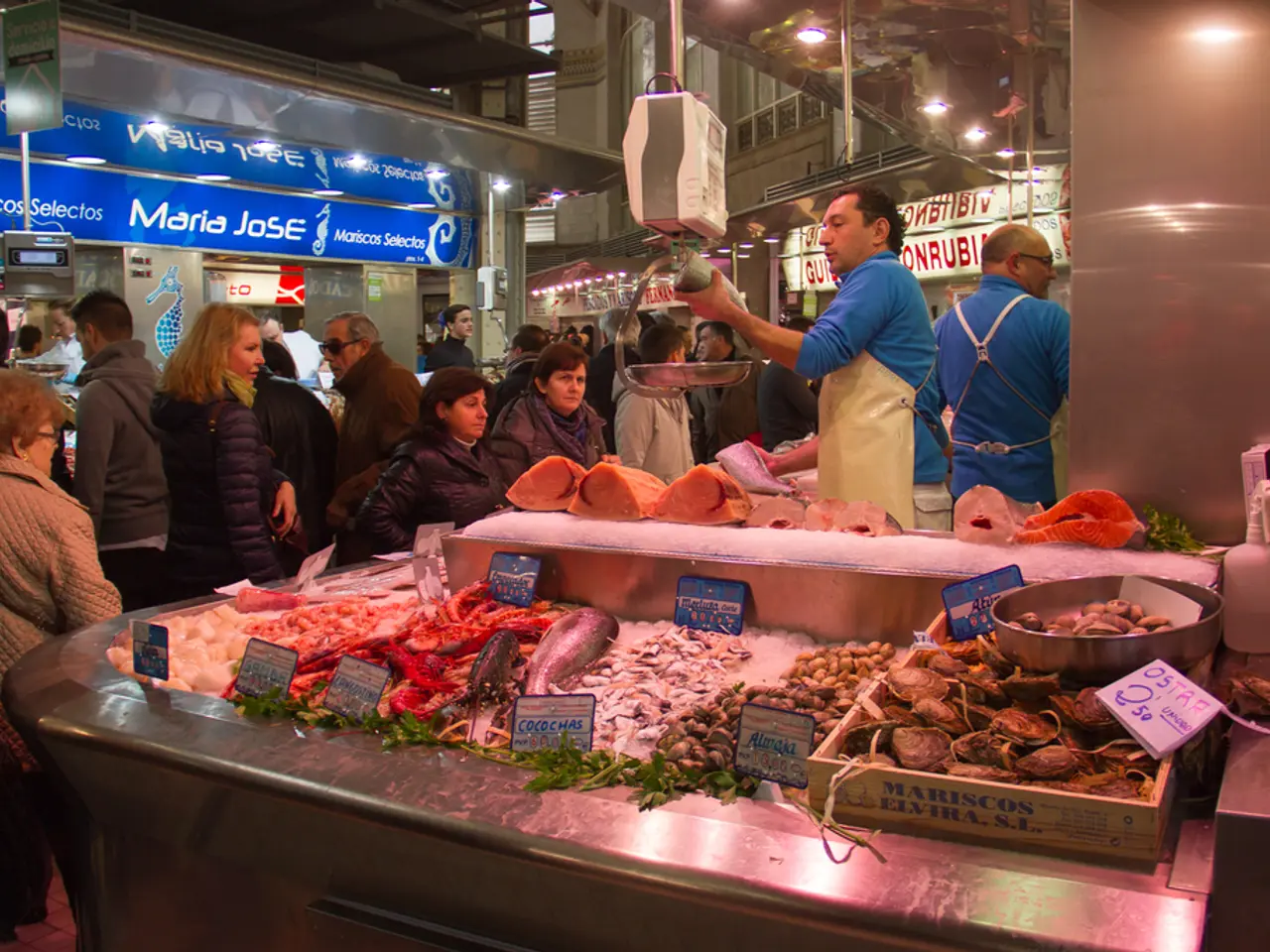Canadian immigration authority charts new path in labor force expansion, focusing on agriculture and fish processing sectors for potential foreign workers
The Immigration, Refugees and Citizenship Canada (IRCC) has announced plans to create a new foreign labor stream, focusing on filling labor shortages in Canada's agriculture and fish processing sector. This move comes after the closure of the Agri-Food Pilot pathway earlier this year, which may have left gaps in the labor market.
The Agri-Food Pilot, launched in 2020, was a temporary pathway to permanent residence for foreign workers in specific occupations such as meat product manufacturing, floriculture production, and animal production. However, IRCC announced on February 13, 2025, that it had reached its application cap for the Agri-Food Pilot for the year and would no longer accept new submissions.
The new stream will not be a temporary solution like the Agri-Food Pilot. It is part of broader efforts to better manage temporary resident levels and support Canada's economic objectives. The department plans to work on policy development and public consultations to support the creation of this new news stream.
The creation of the new agriculture and fish processing stream may be an attempt to fill labor gaps left by the closure of the Agri-Food Pilot pathway. The stream may also expand partner country agreements for hiring foreign workers from specific partner countries in this sector. Possible partner countries for the new work permit stream in agriculture and fish processing in Canada typically include Mexico, Colombia, and Costa Rica, as these countries are often involved in bilateral labor agreements with Canada.
The department revealed plans for the creation of the new foreign labor stream in its 2025-2026 Department Plan, which prioritizes temporary foreign worker applications in essential sectors, including agriculture and food processing. The new program will include a corresponding sector-specific work permit.
It's worth noting that agriculture and agri-food occupations are included in Canada's category-based selection draws under Express Entry. This indicates a continued focus on attracting foreign workers with skills and experience in these sectors.
The new foreign labor stream is intended to address ongoing worker shortages in Canada's agriculture sector. IRCC is working on the development of this stream alongside Employment and Social Development Canada (ESDC) in 2025-2026. Pilot pathways typically run for a maximum of five years, after which they expire, although successful pilots can lead to permanent programs in the future.
This news is likely to be welcomed by employers in the agriculture and fish processing sectors, who have been facing labor shortages due to the closure of the Agri-Food Pilot. The new foreign labor stream offers a more permanent solution to these issues and aligns with Canada's broader economic objectives.
Read also:
- Federal petition from CEI seeking federal intervention against state climate disclosure laws, alleging these laws negatively impact interstate commerce and surpass constitutional boundaries.
- Duty on cotton imported into India remains unchanged, as U.S. tariffs escalate to their most severe levels yet
- Steak 'n Shake CEO's supposed poor leadership criticism sparks retaliation from Cracker Barrel, accusing him of self-interest
- President von der Leyen's address at the Fourth Renewable Hydrogen Summit, delivered remotely




